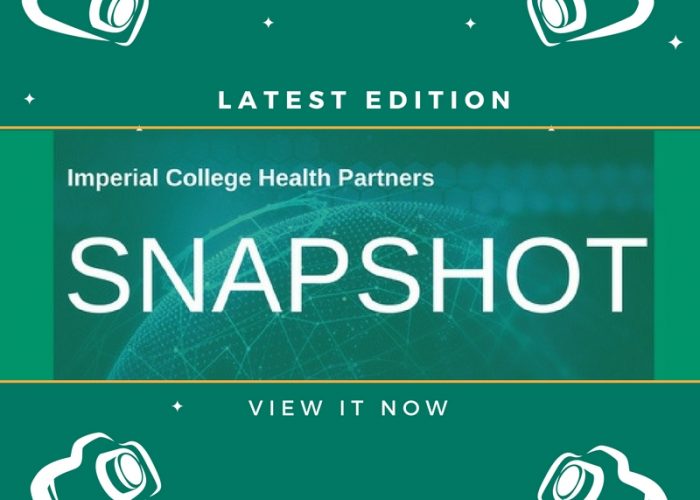Making the NHS an attractive market place for industry to do business in is a priority for all Academic Health Science Networks (AHSNs). However, the barriers causing it to lag behind other systems are complex.
Therefore, in order to develop a sustainable strategy to address these barriers, we need to have both a sophisticated understanding of the issues and also learn from the experience of other organisations, as AHSNs are not the first to tackle this challenge.
In order to understand these barriers more systematically, Imperial College Health Partners (ICHP) has sought to more thoroughly understand the issues to inform our strategy.
Part of this work included commissioning Ipsos MORI to conduct research into three real life case studies in North West London to examine why innovation has not been taken up more quickly.
Their findings – see here for the full report – have highlighted a number of issues that hinder uptake of innovation, including a lack of financial incentives, and education and training in areas such as new drugs and linked data. This intelligence will now be used to help shape and improve our work to diffuse existing innovations, for example NICE best practice guidelines.
We also asked the Institute for Public Policy Research (IPPR) to map systemic barriers and market failures which apply across both healthcare organisations and systems. The most pertinent issues identified include the significant fragmentation of the current NHS, leading to lack of scale and purchasing power, as well as an annual budgeting system which does not allow for investment in transformative innovation over a longer period of time.
Most importantly, the research showed a lack of a systematic innovation eco-system amongst provider and commissioner organisations and an imbalance between new research and the adoption of existing solutions. Systematic scouting for existing solutions does not exist and the necessary incentives, culture and skills are lacking compared to other sectors. The IPPR’s full report can be viewed here.
As findings from this research have emerged we have undertaken a series of practical initiatives to help further test how we can address these barriers through measures such as brokerage, matchmaking, and empowering both industry and their NHS customer base to engage with each more effectively.
For example, last year we piloted a new matchmaker initiative, working in partnership with senior clinical leaders and commissioners from NHS trusts and CCGs from across North West London, representative industry organisations (including UK Trade and Investment and ABPI) and small and medium sized organisations (SMEs). We worked with clinical leaders and commissioners across the Partnership to identify three priority areas of clinical need: preventing and reducing pressure ulcers in the home, home monitoring for psychiatric patients and correct administration of hospital drugs. We then encouraged industry to submit innovative solutions for these issues.
Underpinning this work was our Industry Charter, which sets out how we will work with industry to create an innovative and mature marketplace in North West London.
However, it is clear from both our research, and our practical initiatives, that there remains deep seated challenges inherent in the NHS in its current form that mitigate against quick uptake of innovation.
Distinguishing what can and cannot be achieved locally by AHSNs is paramount, and we are now starting to work with the Strategic Clinical Networks and NHS England (London region) to better use the collective tools we have over the next 12 months, as well as supporting the national NHS England Innovation Accelerator and Test Beds programmes.
Our work is focused on the following areas:
- Firstly, our observation is that most previous attempts to diffuse innovation have focused too much on the ‘supply’ side i.e. supporting entrepreneurs to develop new products and services in the hope that they would be then taken up by the NHS. While this is important, our observation after two years in this space is that unless a vibrant and receptive ‘demand’ side is created to receive innovations and a better balance is found between new and existing solutions, these efforts will remain fruitless. We are therefore working with a small number of member organisations on how we can support them to build a vibrant internal innovation eco-system. This work joins forces with and learns from best practice and decades of experience in the private sector.
- Secondly, we continue to be involved in the Small Business Research Initiative (SBRI), a government funded programme to support entrepreneurs by getting them to respond to NHS need. We have led two calls already and support a small number of projects and entrepreneurs through the London Cancer Alliance.
- Thirdly, we are working in partnership with NHS England and UCLPartners on the NHS Innovation Accelerator Programme, a major initiative to support both innovative products but also provide mentorship for entrepreneurs.
- Fourthly, we are developing a self-assessment tool for researchers to understand where they are in the development phase and what funding routes are available. This will be combined with a social media tool which we are developing with Selfless to better connect entrepreneurs and clinicians building on a successful platform that has been used to match young unemployed people with opportunities for job experiences across London. To further support researchers to take their products to practice, we are studying two projects (one BRC and one NIHR-DEC) to better understand the challenges and potential enablers to routes to practice.
- Finally, we are in the process of setting up the London Digital Health Institute (name to be finalised) in partnership with the other two London AHSNs and MedCity following the London Health Commission. The purpose is still to be finalised and co-designed with stakeholders both in industry and the NHS. But it offers an opportunity to address some of the barriers identified in our work on a pan London basis.
For more information about our approach to diffusion of innovation please contact Axel Heitmueller or Shirlene Oh.


